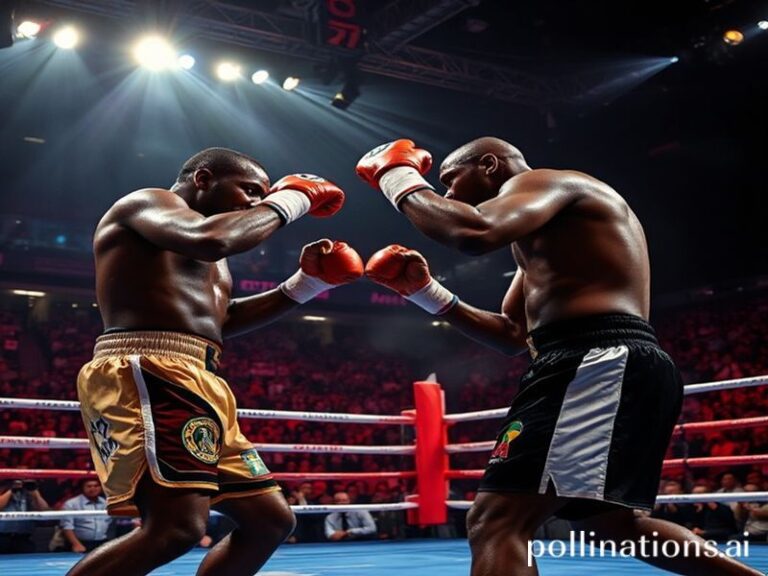djed spence
The Curious Case of Djed Spence, or Why the World Keeps Buying Wing-Backs Like NFTs
By Our Man in the Transfer Twilight Zone
The planet is presently on fire—literally from Athens to Anchorage—yet the global economy still finds room to obsess over a 23-year-old Englishman whose principal talent is running up and down a patch of grass faster than the average climate refugee flees a sinking island. Djed Spence, late of Tottenham Hotspur’s bench and currently Leeds United’s newest emergency loan, has become the footballing equivalent of a Swiss banknote: flimsy, over-printed, and passed around Europe with the reverence normally reserved for holy relics or forged Picassos.
From Singapore trading floors to São Paulo botecos, the chatter is identical: “Will Spence finally unlock his potential?” Translation: will a club finally recoup the €25 million they imagined he was worth when Fabio Paratici still roamed the earth in designer sneakers? In a saner century we’d call this tulip-mania. In 2024 it’s simply Tuesday.
The international implications are deliciously bleak. Serie A watched last season as Spence collected splinters at Tottenham, then politely declined the option to make his Rennes loan permanent—an elegant Gallic shrug that roughly translates to “non, merci.” Ligue 1 thereby dodged a luxury-tax bullet and returned to laundering South American wonderkids instead. Meanwhile, Leeds—fresh from parachute-payment purgatory—now treat the lad like a Brexit dividend: cheap, portable, and carrying the faint whiff of disaster.
At the geopolitical level, Spence’s saga mirrors the wider post-Brexit talent drain. England exports raw full-backs the way it once shipped opium: aggressively, optimistically, and with complete disregard for long-term consequences. Germany eyes the situation like a frugal houseguest at an all-you-can-eat buffet—interested, but unwilling to overpay for yesterday’s carbs. Spain’s big two are too busy courting Vinícius tattoos and Jude Bellingham’s accent coach. Italy, having already experienced Spence up close, has retreated to the comforting embrace of 35-year-old centre-backs who smoke a pack at halftime. The global south watches, bemused, wondering why the north keeps reinventing the same expensive rectangle.
Even the metrics are tragicomic. Spence’s career xG (expected goals) is roughly equal to the probability of a UN climate summit achieving net-zero promises: theoretically possible, historically unlikely. His xA (expected assists) graphs like the Argentine peso—spiky, then plunging toward worthlessness. Yet scouts from Ajax to Al-Nassr still pore over his heat maps with the solemnity of Talmudic scholars, hoping to divine a defensive positioning tweak that will justify another seven-figure gamble. Somewhere, a hedge-fund algorithm is already collateralizing his future resale value into a synthetic CDO. If that sentence frightens you, congratulations: you still possess a soul.
Human nature provides the punchline. Fans—those lovable masochists—now debate Spence’s “mentality” on Reddit threads that read like Soviet show-trial transcripts. Is he lazy? Misused? Or merely the latest victim of a system that discards athletes faster than fast-fashion sweaters? The answer, as always, is yes. We demand 19-year-olds behave like 30-year-old accountants, then act shocked when they crack under existential pressure most CEOs would medicate away with quarterly bonuses.
Which brings us to the broader significance. In an era when entire nations pivot on the whims of oligarchs and algorithms, the fate of Djed Spence is a gentle reminder that nothing—literally nothing—is too trivial to be commodified, securitized, and stress-tested on Sky Sports News. The same supply-chain wizards who can’t deliver baby formula on time can overnight a right-back from North London to West Yorkshire with the precision of a Swiss watch. Priorities, after all, are just another luxury good.
So Leeds fans, enjoy the ride. Spurs accountants, update the amortization tables. And the rest of us, sweating through another record-breaking summer, can take solace in the fact that somewhere, a young man is still paid handsomely to sprint in rectangles while the world burns slightly outside the touchlines. If that isn’t the most honest metaphor for late-stage capitalism, I don’t know what is.







